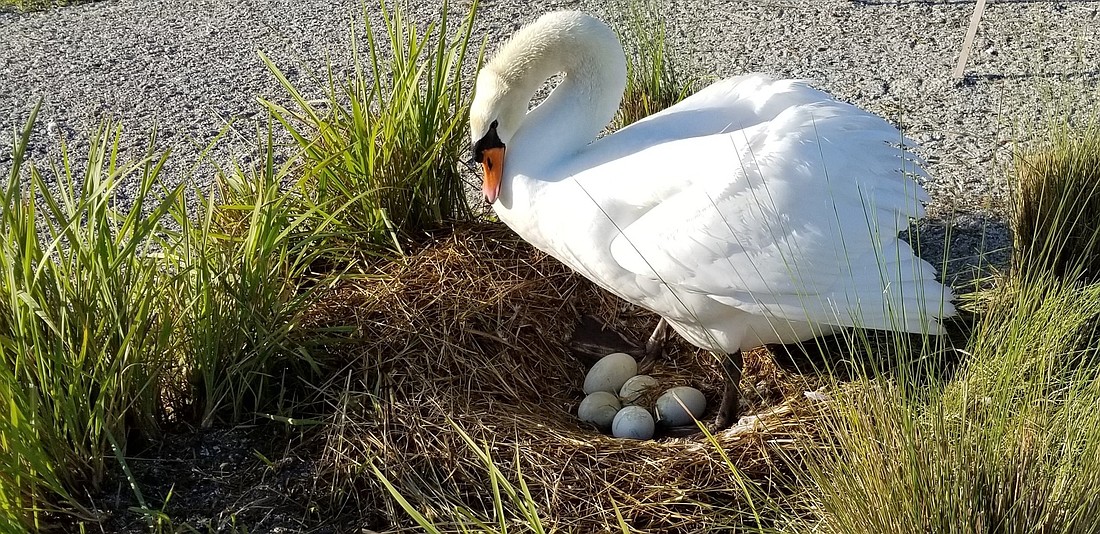- April 23, 2024
-
-
Loading

Loading

The swan population of Longboat Key’s golf courses could soon see a bump, thanks to six little bundles of joy being incubated on Harbourside Golf Course by Greta the swan.
In total, there are six swans on Harbourside and five on Islandside within the Longboat Key Club’s golf courses, said swan keeper David Novak. Greta is incubating this season’s only nest.
Greta sits on the eggs about 23 hours a day, said Novak, who checks on his birds twice a day to scatter feed nearby. That one free hour is when Greta leaves to grab a bite to eat, while mating partner Clark takes a turn keeping the eggs warm. Greta and Clark also built a nest last year, but did not welcome any cygnets.
“Last year they built their nest too close to the water and in a big rainstorm the water came up and chilled the eggs, stopping incubation,” Novak said of last year’s nest. “Once you stop it, you can’t restart it.”
Novak doesn’t expect to see any more nesting going on.
“If we could get four viable cygnets from there I’d be very happy,” Novak said.
If these eggs remain viable, they’ll finish the 35-day incubation period around April 27 or 28 because they were laid in late March. This would be the first time in three years that Longboat Key’s swans would see cygnets.
“I think that when they do hatch, we'll have quite a crowd on Bay Isles Parkway there, because they’re really cute fluffy guys,” Novak said.
When the eggs hatch, the cygnets would spend their first day in the nest. It can sometimes take 12-24 hours for the eggs to hatch fully. By the second and third days, the swan parents teach their young how to get in the water and how to forage. They don’t spend a lot of time in the nest after that, as it’s seen as a vulnerable place, Novak said.
When the population has been higher, Novak will sometimes move some birds to other communities, but thinks he would keep all the cygnets that hatch this year.
“They've really come along in the years,” Novak said. “They interact very passively with the golfers, and golfers know them. Now that the population is controlled and they have sufficient territory, they seem to be very, very docile. It's a lot of harmony going on out there and that's very gratifying.”